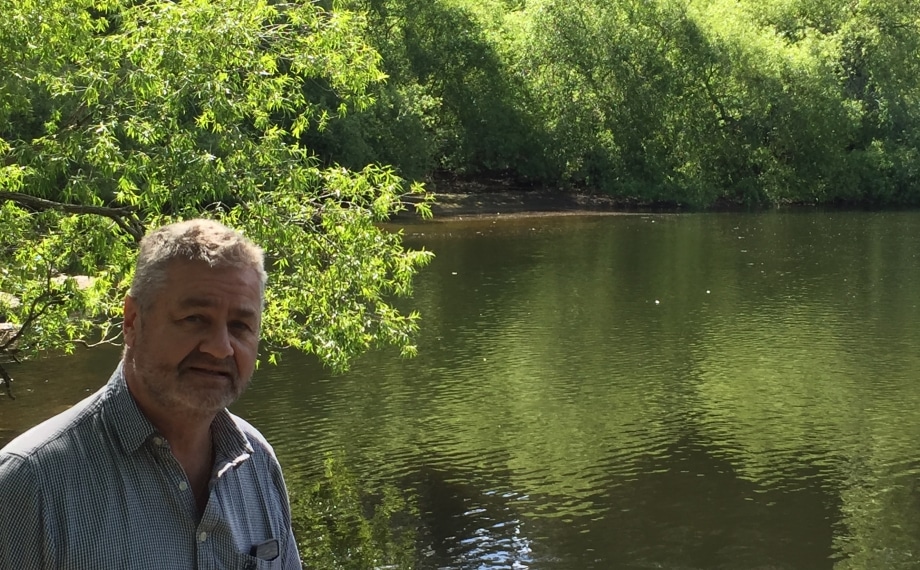
December 7, 2022
Prostate cancer is the most commonly diagnosed cancer (apart from skin cancers) in New Zealand men. Each year more than 4000 men are diagnosed with prostate cancer across New Zealand. Bowen Icon Cancer Centre now offers faster, more effective treatment for prostate cancer patients with the introduction of linear accelerator-based stereotactic ablative radiation therapy.
Stereotactic ablative radiation therapy reduces the overall treatment time, delivers high doses of radiation in less than 15 minutes, and monitors the patient’s prostate motion using small gold markers to ensure the radiation is delivered with absolute accuracy.
Invercargill local John Patrick is the first prostate cancer patient treated with stereotactic ablative radiation therapy at Bowen Icon Cancer Centre. The 62-year-old was diagnosed with prostate cancer in February this year.
“It started with a urinary retention problem in 2020. I was treated by a urologist who diagnosed a stretched bladder and slightly restricted flow through the prostate. Following a period of unsuccessful self-catheterisation, the urologist performed a TURPS procedure, and the urine retention problem was reduced. At the same time, a PSA (Prostate Specific Antigen) test was done, which showed my PSA was high. My GP started to monitor the PSA level, which started to climb higher and higher. The decision was made to do a biopsy, and cancer was confirmed. The Gleason score was relatively low at 3+3, and the decision was made to monitor the prostate with regular MRI scans. However, the first scan came back with a PI Rads level 5 score, which normally suggests quite an aggressive tumour. I was advised to undergo a radical prostatectomy, which I wasn’t entirely comfortable with. A family member suggested I speak to an oncologist, so I went back to see my GP, and he referred me to Dr David Anderson. Dr Anderson explained the radiation options available to me, and it gave me different avenues to try. Meeting Dr Anderson and the team at Icon was a godsend,” John said.
John was referred to Bowen Icon Cancer Centre and underwent five sessions of stereotactic ablative radiation therapy over ten days. John, who started a new job at the same time as his cancer diagnosis, said the reduced treatment time offered by the new treatment was a vital factor in his decision.

“For me, it was essential to have a reduced treatment time. Because I had just started a new job, having five or six weeks off to undergo treatment wasn’t an option. Taking ten days off was doable. I feel privileged I was able to have this treatment. When I started the process, the team at Icon made me feel like they had done it a thousand times. The treatment I received was absolutely first-rate, and the medical team were fantastic. My PSA is now down to 1.9, which is as good as can be expected (two months on from) finishing treatment. It was 8.9 before the treatment”.
– John Patrick
John is now encouraging his male friends, family members, and colleagues to get tested and, in the case of a prostate cancer diagnosis, to thoroughly research treatment options.
Bowen Icon Cancer Centre Radiation Oncologist Dr Han Kim said the new treatment is a big win for New Zealand prostate cancer patients.
“This technology allows a high dose of radiation to be delivered to the tumour very precisely, without compromising surrounding healthy organs due to the ability to treat with sub-millimetre accuracy. Through larger daily doses of radiation delivered to patients with SABR, treatments can be completed within five to seven treatments spanning over ten to fourteen days. A standard course of prostate cancer radiation therapy can involve four to eight weeks of daily visits. This makes stereotactic ablative radiation therapy considerably more convenient for patients, minimising the impact and burden of time and travel, particularly for those who live some distance from a radiation therapy centre,” Dr Kim said.
Bruce Bennett says new technology that zeroes in on hard-to-target prostate cancer is a great advancement – he just wishes it had arrived earlier, and cheaper. After three biopsies, dating back to 2005, that missed his cancer, Bennett – a 65-year-old retired Wellington teacher – was tested earlier this year with new fusion biopsy technology, which found […]
Read moreAcurity Health Group and property partner Vital Healthcare Property Trust have confirmed base isolators will be employed in the $106 million re-development of Wellington’s Wakefield Hospital enabling it to remain operational after a major earthquake. Wellington City Council has granted a Resource Consent for the proposed new hospital. Enabling works are currently underway with construction expected […]
Read moreBase isolators will be part of Wakefield Hospital’s $106 million redevelopment to ensure it can keep operating following a major earthquake. Plans were announced in November to bowl most of Wellington’s largest private hospital, in Newtown, to make way for an upgrade which will give patients access to state-of-the art facilities. Acurity Health Group and property partner Vital […]
Read more